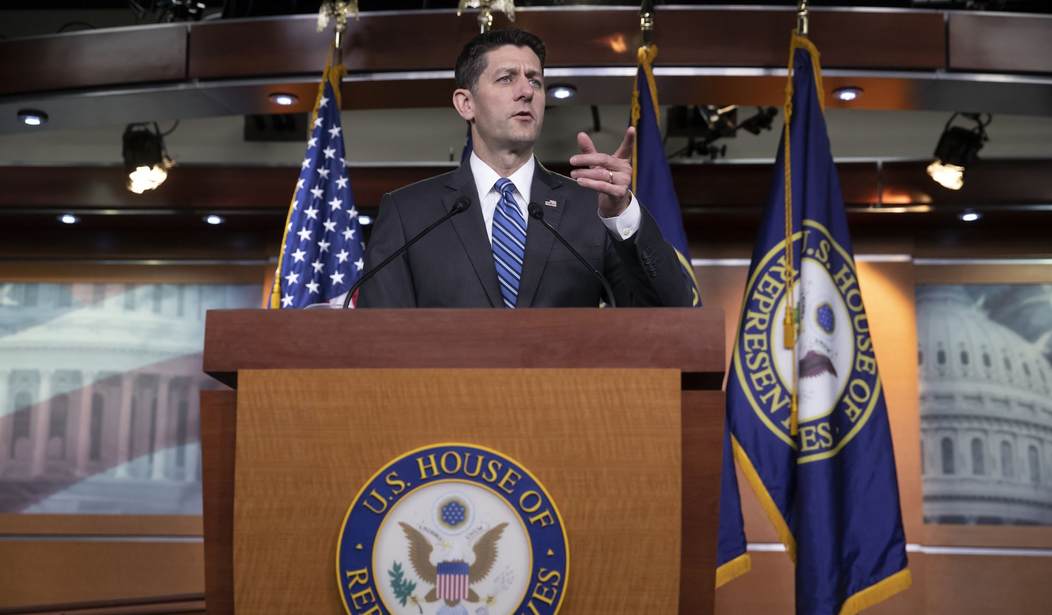Editor's Note: This column was written by Jake Grant.
***
On Friday, the House rejected their version of the farm bill (H.R. 2), an extension of the 2014 bill—one that allowed too much cronyism and waste. 30 Republicans, some moderates, and some members of the conservative House Freedom Caucus stood with 183 Democrats in opposition to the legislation. The House tried to jam through a farm bill that reforms the Supplemental Nutrition Assistance Program (SNAP), or food stamps, but did not address the wasteful crop insurance and subsidy programs. Fortunately, there was enough distaste to sink the bill and force leadership to bring everyone to the table and pass something with actual reforms.
Over 100 amendments were offered, yet only a few had a vote on the floor. Rep. Mark Meadows (R-NC) offered an amendment that limited eligibility for commodity payments to actual farmers, ending the loophole that allows non-farmers and ranchers from receiving subsidies, but was not given a vote. Another that was dismissed, offered by Rep. Mark Sanford (R-SC) and Ron Kind (D-WI), would have lowered the profit that crop insurance companies are guaranteed from 14.5 percent to 12 percent. Rep. Ralph Norman’s (R-SC) amendment, shifting the burden of crop insurance premium subsidies from taxpayers to the farmer receiving the benefits, was also simply ignored. That amendment simply forced the farmer who is seeking insurance to pay a higher percentage of the premium, instead of forcing the taxpayer to bail them out. In no other industry do taxpayers have to prop up private insurance.
Reforming and modernizing the sugar program, offered by a bipartisan group of eight members was one of the few good amendments allowed for discussion on the floor—but it ultimately failed by a large margin. The rules committee chose to debate less than half the amendments offered, often skipping the ones that would make meaningful changes.
Though some members were counting the farm bill as a win for small government because of the reforms to the food stamp program, there was still a long way to go. After all, the Congressional Budget Office has pointed out in their score that: “The federal government’s administrative costs for [the food stamp provision] would increase by $7.7 billion over the same period...mostly to fund training. Under this provision, SNAP spending would decline, on net, by $1.5 billion over the 2019-2028 period.”
Recommended
Even though they attempted to reform aspects of the food stamps program, the bill still increased direct spending by over $450 million and discretionary spending by $31 billion over the next decade. It is important that SNAP is reformed—and work requirements for able-bodied SNAP recipients is definitely a move in the right direction—but there was plenty of room for even bigger changes that make entitlement programs actually sustainable.
While reforming entitlement programs is necessary, attempting to do so while ignoring the cronyist aspects of the farm bill misses the point. Leaving the cap for commodity support programs like Agriculture Loss Coverage (ARC) and Price Loss Coverage (PLC) at $900,000 a year in gross income is wasteful. If you are strengthening requirements for programs like SNAP, millionaires receiving taxpayer support should also be on the chopping block. It was a good move for both Republicans and Democrats to stand-up to this hypocrisy and vote against a bill that hands money to farmers who don’t need it, while ignoring the people who do. The bill would have also increased price guarantees and continued handing subsidies to farm managers who may not even live or work on a farm. Currently, some farms could select up to three managers to be eligible for subsidies. Basically, the bill cuts benefits in one area, but continues cronyism in another.
Additionally, it expanded subsidies to include cousins, nieces and nephews, who will be eligible to collect an additional $125,000. Like the newly defined family members, another loophole makes limited-liability corporations and S-corps “pass-through entities,” allowing these firms to bypass the income caps and continue collecting taxpayer subsidies, no matter how much money they rake in. Much of the subsidies aren’t given to the typical family farmer you think of.
The Environmental Working Group has a farm subsidy database, which breaks down who receives what. The top one percent of recipients receive 26 percent of all commodity subsidies from 1995 to 2016, while the top 10 percent receives 77 percent. The bottom 80 percent receive only 9 percent of the commodity subsidies; the farm bill is hardly protecting your neighborhood rancher, rather, that farmer and the all other taxpayers are propping up big agribusiness.
Rumors are circulating that the Senate will be introducing their version of the farm bill sometime in the next month, hopefully with some of the conservative policies advocated by the House side. It is unclear what the next steps are for the House, though some are advocating for a debate on immigration in exchange.
The farm bill only comes around every five years and striking down this legislation is a strong conservative win. The House had the opportunity to attach strong, conservative amendments to this bill, yet failed to do so, resulting in a tanked farm bill.
Jake Grant is the Outreach Director for the Coalition to Reduce Spending and an Advocate for Young Voices. The views expressed are his own and do not necessarily represent the views of his employer. Follow him on Twitter @thejakegrant.

























Join the conversation as a VIP Member